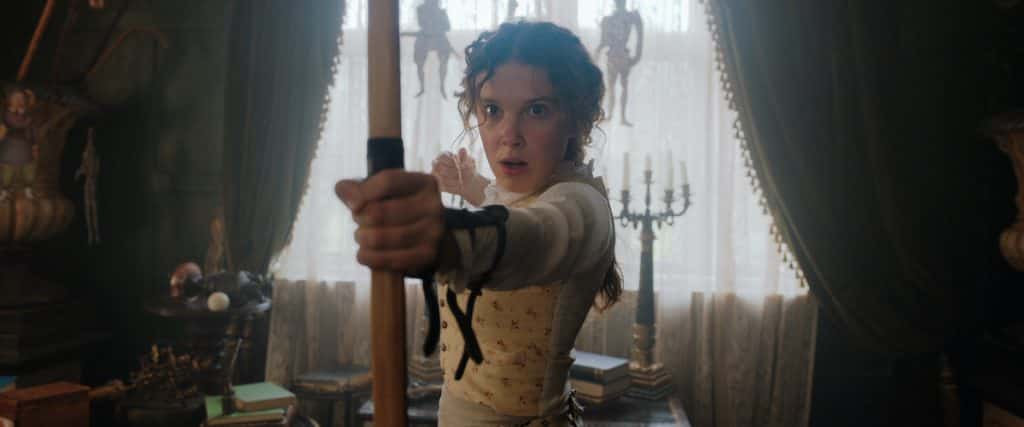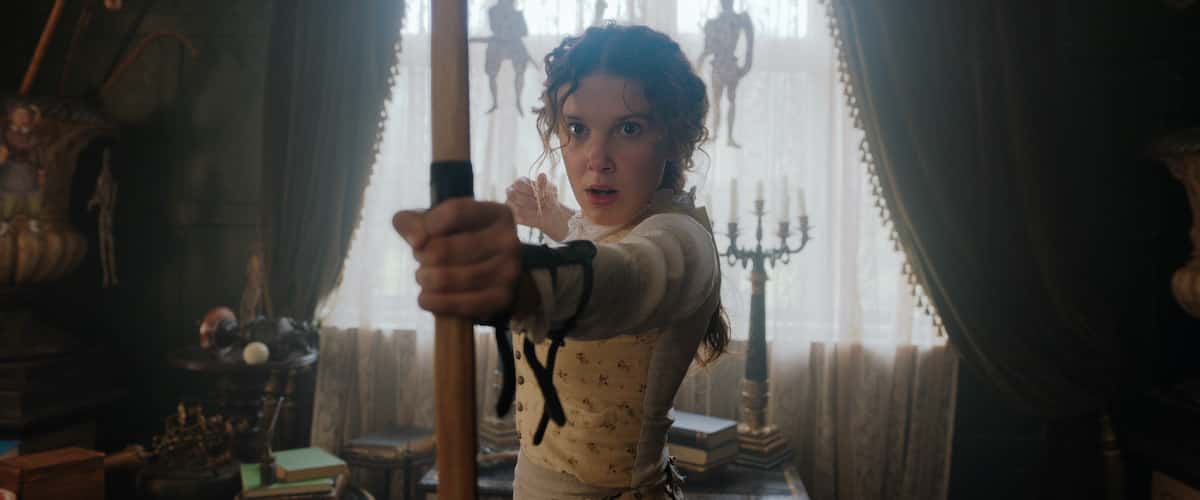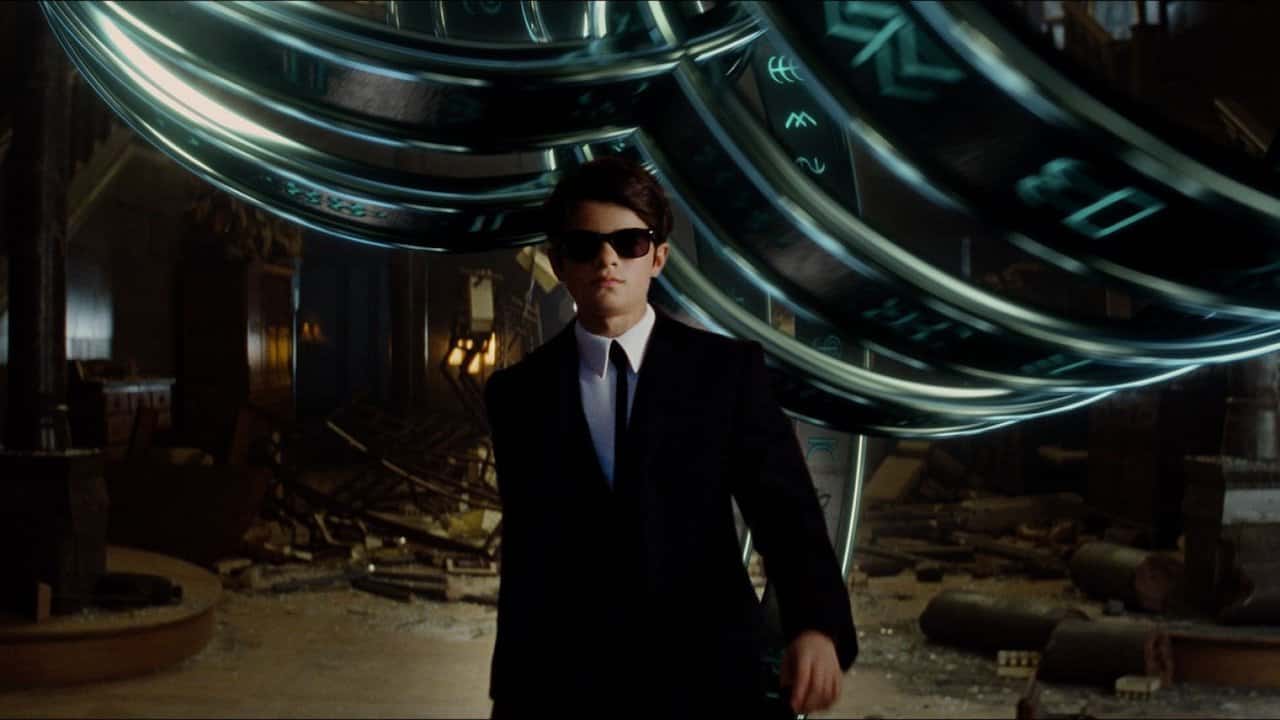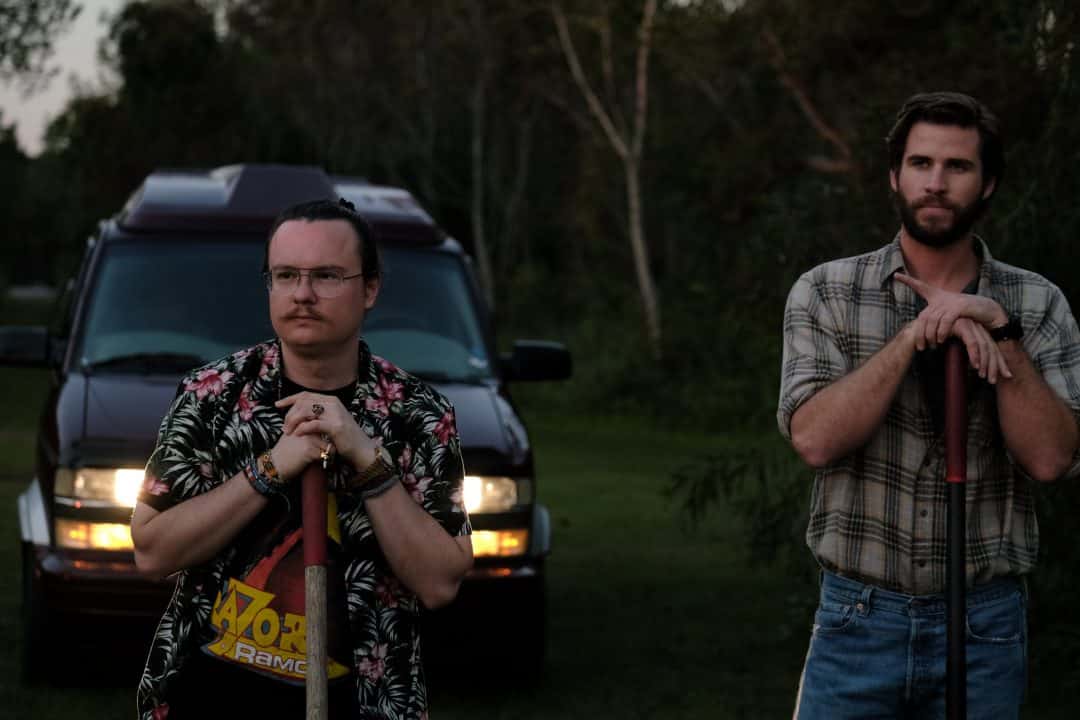Movie Review: Enola Holmes
24th September 2020
Copyright: Netflix
NETFLIX, a place where quality is destitute, a dry wasteland of ill-nourished concepts and age-old stories we’ve seen time and time again. Occasionally, between bouts of rewatching Peep Show and using this tedious streaming platform as background noise, there’ll be a new release. Enola Holmes was coughed up today, a film that takes a look at the lesser-known adventures of Sherlock Holmes’ titular, younger sister. Storming the oddly glistening, squeaky clean streets of London, director Harry Bradbeer marks his feature-length directorial debut not with a roaring success, but a whimpering mess of a product that feels like it was passed between producers and executives, rather than artists and writers.
It’s completely lifeless. Enola Holmes should have been, at the very least, a competent and engaging mystery that shines light on the obscure characters Sir Arthur Conan Doyle had in his repertoire. Instead, we get an early day’s adaptation, a time before Holmes had met Dr Watson or bested his nemesis Mycroft. Rather than that, we have Sherlock Holmes, played inconceivably by a puzzled, burnt out Henry Cavill, swanning his way through the scenes trying not to shatter the prop departments efforts with his chiselled jaw. With the eponymous role marking the first feature film lead for Stranger Things actor Millie Bobby Brown, it’s very much her time to shine.
But that opportunity never arises, and instead we’re left with a half-baked mystery that isn’t serious enough to engage its older Sherlock fans, and too silly to enjoy the mystery itself. Thankfully the cast aren’t to blame for this, their performances aren’t great, but there’s only so much they can do with this abhorrent script, filled with plot holes, littered conveniences and a general inability to follow its narrative. Shovelling any “unique” trope Bradbeer can think of, from unnecessary Dutch angles to fourth wall breaks, animated segments and steady supporting performers, there’s no signs that the crew behind this piece have taken a step back to see what is working. The few working cogs are featured far too briefly, with Fiona Shaw’s sparse time on the screen being the silver lining of an otherwise repugnant piece.
Worst of all, though, is the films inability to represent London as anything but cheery cockney’s with hearts of gold and twinkles in their eye. It shies away from the darker, grittier underbelly entirely, instead offering up a squeaky-clean adaptation that feels more like The Personal History of David Copperfield rather than of the Ripper Street qualities found within Guy Ritchie and Robert Downey Jr’s efforts. Victorian-era London was a grim place, somewhere sin was profitable, and morals were few. Even the apparently working-class characters are polished and brushed with the same broad strokes as each of the upper-class toffs presented to us. Squeaky clean, the streets of London appear to have no heart in them. The direction is sleek and flat, with no depth from Bradbeer in sight. Their representation of different classes is entirely absent, London is shown as a happy-go-lucky area of spontaneity and optimism, rather than the crushing, smoke-filled horror show it was. Those areas are brushed off of the screen and into the unknown.
Misdirection of class and culture aside, Enola Holmes is a very boring film. Its consistent fourth wall breaks are grating from the very first moment it’s used, the rest of the cast are criminally underutilised and may as well be brief cameos rather than fully-fledged roles. Bradbeer’s biggest problem is his lack of focus. He darts between several different plot points, all of which feel shoddily concluded, poorly expanded upon, or just left entirely. There’s an open-ending in the hopes of a sequel, but you don’t have to be the world’s greatest detective to figure out there’s a slim chance of that happening.


